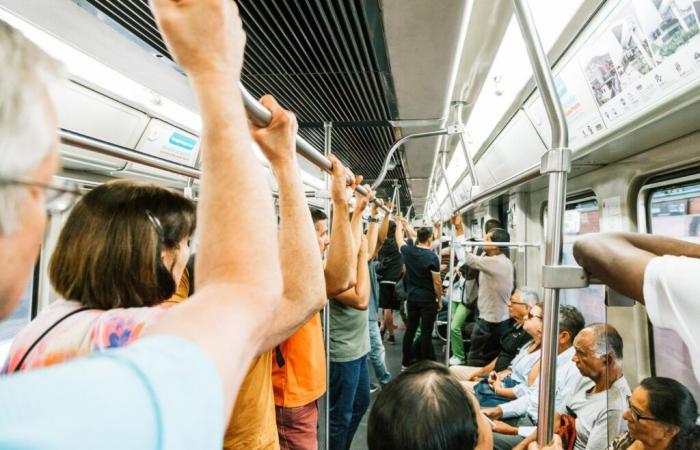
The Paris metro is modernizing, and not everyone likes it. While the MF19 trainsets are preparing to gradually replace the old models in circulation on lines 3, 3bis, 7, 7bis, 8, 10, 12 and 13, their design raises questions. The Ile-de-France transport users' association considers these new trains “incomprehensible”, while Île-de-France Mobilités, in charge of their deployment, sticks to its positions.
Fewer seats in trains
The new MF19 trains must be put into circulation by the end of 2025. On paper, they promise a number of improvements to make life easier for users, such as a refrigerated ventilation system, USB sockets for charging an electronic device, or even more complete visual and audio information devices. The objective is not only to make the journey of travelers more comfortablesince the deployment of these new trains should also allow a huge gain in reliability, according to Ile-de-France Mobilités. By 2033, 50% of the historic trains operated by RATP will be replaced.
The fact remains that behind these undeniable advantages, the MF19s nevertheless suffer from one hell of a flaw: they skip the majority of seats. Quoted by our colleagues from Le Parisien, Michel Babut, vice-president of the Association of Transport Users of Ile-de-France (FNAUT-IDF) reports 122 seats in the new trains, compared to 246 currently on the line 8 for example.
“Necessary” changes
For IDFM, these changes are essential in order to improve the overall quality of service on its lines, particularly in streamlining passenger traffic on board, by accelerating boarding and alighting during rush hour and reducing dock parking times. According to the organization, this change will “gain the capacity of two additional trains per hour, or nearly 1,000 additional travelers who will be able to use the metro“.
-A difficult choice to understand for the FNAUT-IDF, which denounces degraded travel conditions for travelerswho could find themselves at six to eight people per square meter during rush hour, while official recommendations usually limit the ratio to four people. The association also denounces a failure to take care of people with reduced mobility and the aging Parisian population, while IDFM ensures that the project was “presented and approved by PMR user associations“, with the presence of spaces dedicated to people with reduced mobility at the ends of the trains.
The organization also specifies that this massive deployment was the subject of a big investment for the region : for lines 8 and 13 alone, more than 1.4 billion euros were invested.
???? To not miss any news on the Journal du Geek, subscribe on Google News. And if you love us, we have a newsletter every morning.





